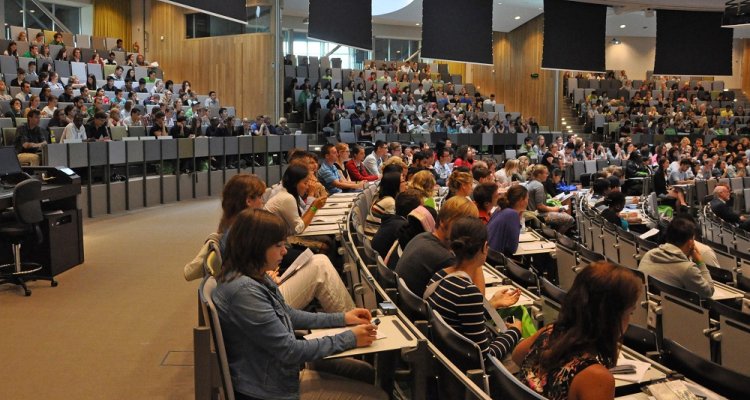
4TU.Centre for Engineering Education
The 4TU.Centre for Engineering Education (4TU.CEE) is the centre of expertise for teachers and scientists with questions and ambitions in the domain of Engineering Education at the four universities of technology in the Netherlands: Delft University of Technology, Eindhoven University of Technology, University of Twente and Wageningen University & Research.
Are you involved in education and looking for tools, best practices and research that will help you educate ‘futureproof’ engineers? Are you interested in innovative, interdisciplinary education and modern learning environments? Would you like to contribute and share your expertise in this field? Then explore what the 4TU.CEE has to offer!
Innovating Education for Tomorrow’s Engineer
Activities
4TU.CEE:
- establishes networks connecting teachers, scientists, support staff and international colleagues involved in educational innovations;
- contributes to new ideas, constructs new frameworks and experiments with new approaches
- provides input for university visions and helps implement these;
- maps, surveys and communicates recent innovations, trends, tools, research evidence and advancements at the four universities;
- engages in research and professional development activities on a variety of topics to foster the innovation of engineering education, typically via projects, short-term practice-oriented projects, exploratory studies to identify promising practices, as well as more fundamental PhD studies;
- organises workshops, conferences and other events to enable education staff to learn about innovations, exchange ideas and actively participate.
For these activities, the 4TU.CEE website, and in particular the networks of 4TU.CEE staff at the universities, provide a platform for staff to share expertise. An important source of information for teaching staff is our Innovation Map. It provides access to tools, research results and promising practices.
Topics of Interest
4TU.CEE focuses on four themes (and related subtopics):
- Educating Future Engineers: engineering profiles; the professional identity of engineers; new competencies and skills for engineers, such as digital literacy skills and entrepreneurial skills; learning lines to realise the engineering profiles.
- Interdisciplinary Engineering Education: organising and assessing interdisciplinary learning activities; collaboration between disciplines, cultures and practices; boundary crossing; interdisciplinary tracks and projects.
- Engineering Educational Ecosystems: teaching and learning in modern learning environments; conditions for rich and flexible learning; challenges, innovation spaces, incubators and extra-curricular activities; involving business and society beyond regular projects and internships; augmented and virtual reality, blended learning solutions.
- Teaching Excellence in University Engineering Education: frameworks for career paths for teachers; senior qualification trajectories in education; teacher learning during innovations and professional curriculum design